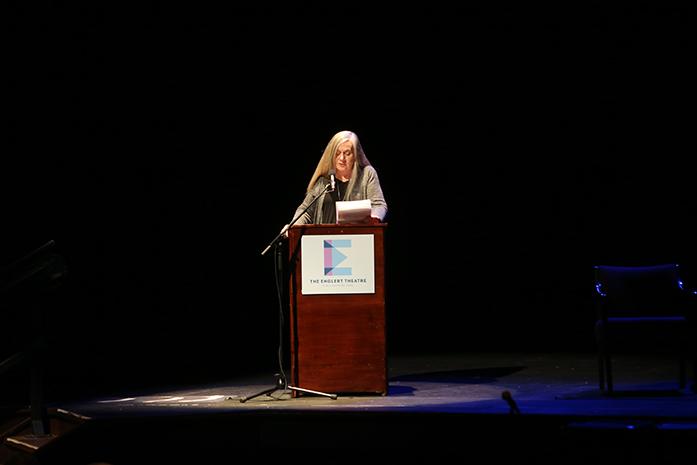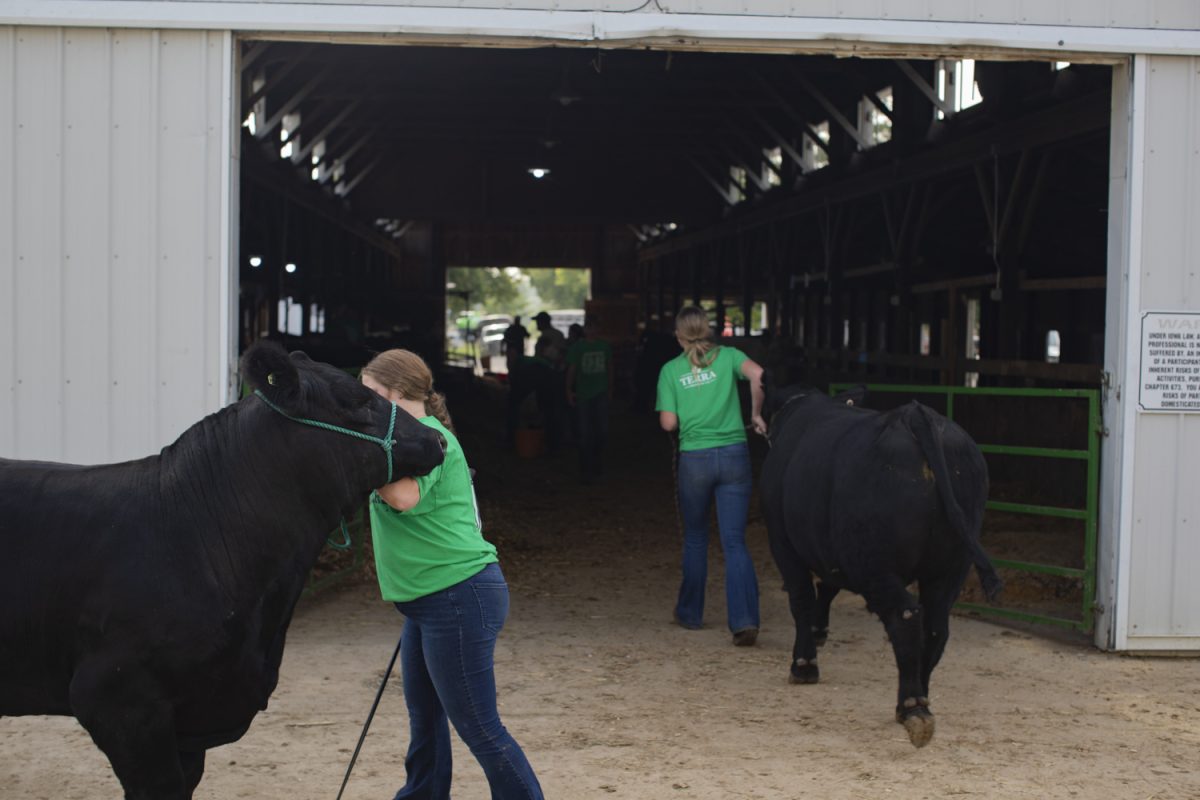As President Barack Obama’s Jan. 16th final State of the Union address approaches, a packed house at the Englert Theatre, 221 E. Washington St., on Wednesday evening witnessed one of Iowa City’s, and America’s, most prominent scholars, Professor Marilynne Robinson, deliver another kind of national address.
Robinson is a professor of English and creative writing at the Iowa Writer’s Workshop and has received numerous literary awards for her work, including the Pulitzer Prize, the National Book Critics Circle Award, and in 2012, the National Humanities Medal awarded to her by President Obama.
Robinson’s lecture, “The American Scholar Now”—a thoughtful consideration of the current state of the nation’s affairs with respect to its economic, academic, and sociopolitical priorities —had been written for the presidential address at Stanford University in Oct., but, upon the suggestion of fellow English professor Ed Folsom, was reprised here at the University of Iowa.
The lecture came at an appropriately decisive time in the UI’s history, in which concerns about the Board of Regents’ election of President Bruce Harreld and the overall state of the American public university are reaching a fever pitch.
Members of Iowans Defending Our Universities, a vocal advocacy group opposed to Harreld’s hire by the state Board of Regents, appeared in costume as previous UI presidents outside the event in demonstration.
In her lecture, Robinson outlined a rapidly manifesting dichotomy between the country’s current economically incentivized state and the original American vision of a true democracy.
She discussed everything from climate change to minimum wage and the second amendment, bemoaning the country’s apparent inability to enact any social or legislative change to prevent the ever-growing list of unemployed and prematurely expired citizens.
The word citizen, itself, was a point of particular interest for Robinson, who said the American idea of “the citizen” has been effectively replaced by “the taxpayer” in a shift symptomatic of the country’s ever-growing monetary obsessions and “preoccupation with practicality.”
In a post-lecture interview, Robinson remarked on what makes the American higher education system so unique from its counterparts around the world, and why losing its original essence is so intolerable.
“What you have here that you don’t see anywhere else, in France, in Germany, is the banquet of the American university system,” she said. “Students are able to come in and taste as many different things as they like.”
This core aspect of the liberal arts education is key in the development of a well-rounded citizen, Robinson argued, and instrumental in bringing students to a place where they feel comfortable choosing a career path.
“To me, the American dream is most visible when you come onto a campus and find out what it is you want to devote your life to,” Robinson said.
These notions are in direct opposition to the current trend, which places an overwhelming emphasis on utilitarianism and practicality, and shuts the door on any possibilities of creative expression or human development.
Robinson didn’t limit her critique to one facet of the widespread problem, however, taking aim at the propagandistic mouthpieces of a society seemingly obsessed with fearmongering and creating unrealistic perspectives on economic and occupational scarcity.
“We are encouraged to accept the inevitable emergence of a dystopia,” she said.
For years, the university system has functioned as an instrumental player in solving these large-scale societal problems, but in recent years errant capitalist interests have begun to undercut the academy’s value.
“Universities as they exist no longer make sense to legislatures and the nation’s moneyed interests,” Robinson said.
To combat the problem, Robinson said there must be a focus on detaching elitist connotations from higher education (one member of the crowd, during a brief post-lecture Q&A remarked that liberal arts degrees are now even deemed “cute,” the ultimate condescension and disassociation from any notions of practicality) and resynthesizing preconceptions of scholarship with utilitarianism.







